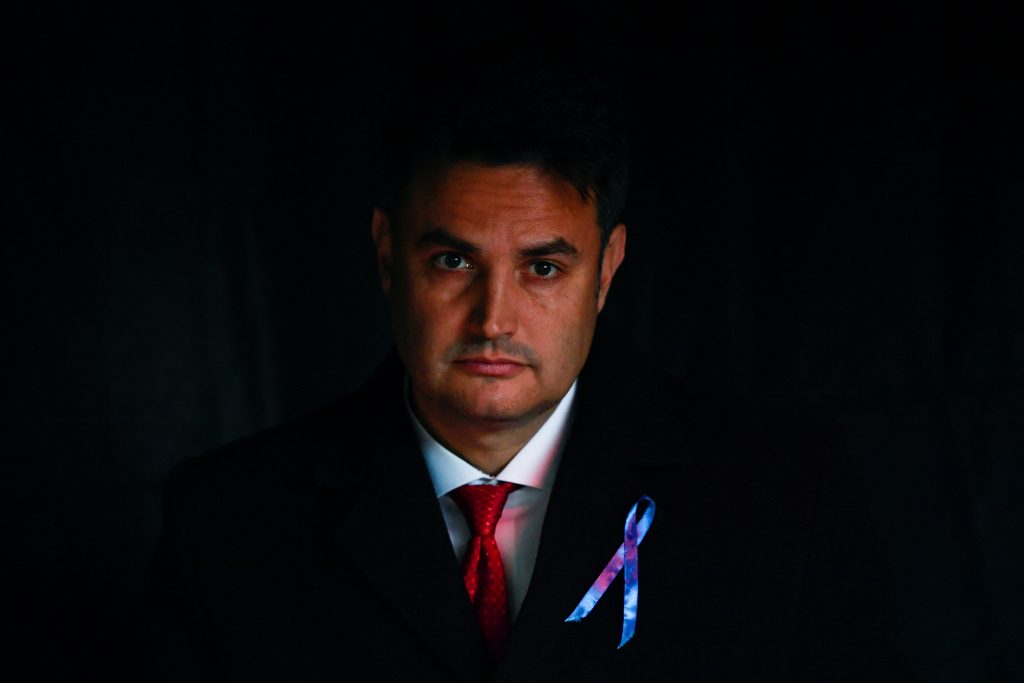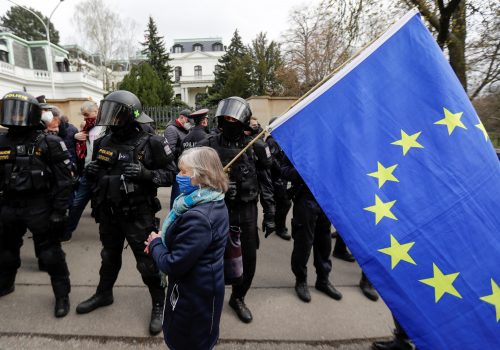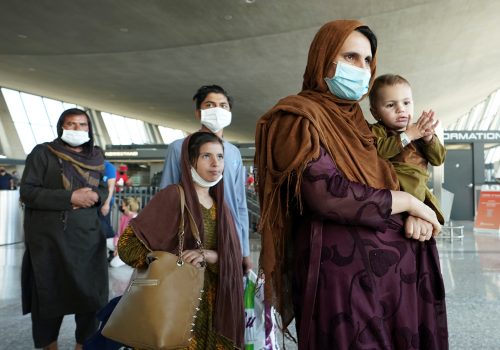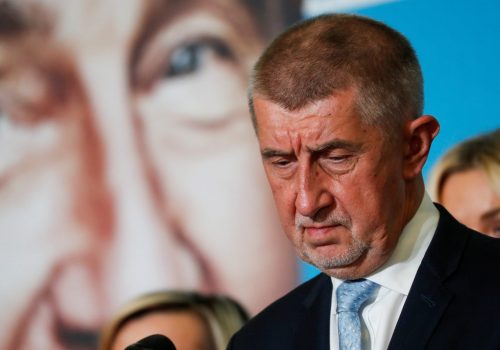Following years of steady democratic erosion, opposition-minded Hungarians are already girding for next year’s parliamentary elections—where they hope to finally unseat their populist and self-described illiberal prime minister, Viktor Orbán.
Their chief hope? Péter Márki-Zay, an engineer-turned-politician who won last month’s opposition primary to head a joint multi-party ticket. Márki-Zay, currently a small-town mayor in central Hungary, joined the Atlantic Council’s Europe Center for a discussion Thursday as part of Central Europe Week to outline the situation facing his country.
“Measured absolutely objectively, Hungary is not a democracy anymore,” he said. “There’s no rule of law, there’s no freedom of the press, and elections are not free and fair.” But Márki-Zay added that there’s still hope for turning the tide against Orbán and his ruling Fidesz party to secure a much-needed win for democracy in the region.
In this talk, which was moderated by Daniel Fried, who is the Weiser Family Distinguished Fellow at the Council and former US ambassador to Poland, the newly crowned opposition leader breaks down his case against Orbán and how the international community can help.
Watch the full event
Orbán has no real ideas
- Perhaps counterintuitively—especially given Orbán’s frequent characterization as a “conservative”—Márki-Zay was quick to promote his own conservative credentials: He adheres to Christianity and national traditions, and he is personally against abortion and divorce. But he believes the government has no business banning divorce or abortion, and he supports free-market and green policies. “As for Mr. Orbán, I don’t consider him either a Christian or a conservative,” Márki-Zay said, pointing to the Hungarian leader’s shifting ideologies throughout his career and his eventual pursuit of a “one-party state.”
- Instead, Márki-Zay argued, graft has become the main game in town, with Orbán seeking to enrich his cronies while also consolidating power through methods such as controlling the media. “If it comes to money, Orbán really has no values at all. Communism, facsicism—it doesn’t matter. Corruption, that’s the only consistent value for Orbán,” Márki-Zay said.
“More Europe”
- With Orbán inflaming anti-European Union (EU) tensions, Márki-Zay says he’s “a firm believer in a federal Europe”—and claims the vast majority of Hungarians feel the same way.
- He even invoked the Austro-Hungarian Empire of the late nineteenth and early twentieth centuries as a prime example of European integration, which he argues was even more successful than the functions performed by some of the EU’s current structures. “The EU has problems—no doubt about it,” he said. “But the solution is not less Europe. The solution is more Europe.”
- Amid the unfolding tensions on the EU’s eastern flank, Márki-Zay also said it’s important to push back against Russian attempts to fracture Europe and weaponize energy. “The East is an important commercial partner, and we… have to deal with them on a mutually beneficial basis and not give up Hungarian national interests.”
Specific support
- With parliamentary elections slated for sometime next spring, Márki-Zay said Orbán’s government will likely resort to whatever tricks it can—such as changing electoral law—to ensure a favorable vote. “There’s nothing to stop Fidesz from moving electors around and changing the demographics in swing districts.”
- The international community can help, he adds. But rather than broad condemnations, it should specifically single out Orbán’s offenses, such as his government’s restriction of public airtime for opposition candidates. Said Márki-Zay: “If you focus on these very specific issues, which are even outrageous to decent Fidesz voters, then you can help.”
Dan Peleschuk is New Atlanticist editor at the Atlantic Council.
Further reading
Fri, May 14, 2021
Czechmate? What’s behind the downward spiral in Czech-Russian relations
New Atlanticist By Petr Tůma
After Czech officials exposed Russia's involvement in the 2014 explosions at the Vrbětice arms depot, diplomatic tensions have spiked. A Czech diplomat previews what's coming next.
Fri, Aug 27, 2021
Echoes of Hungary: What a former ambassador sees in the Afghanistan debacle
New Atlanticist By András Simonyi
There is a sad correlation between the West’s failure to help Hungary and the events unfolding in Afghanistan.
Thu, Oct 14, 2021
Is liberalism ending its losing streak in Central Europe?
New Atlanticist By Petr Tůma
The Czech opposition's victory could inspire other democratic forces across the region.
Image: Opposition candidate for prime minister Peter Marki-Zay looks on as he attends a joint demonstration organized by opposition parties during the celebrations of the sixty-fifth anniversary of the Hungarian Uprising of 1956, in Budapest, Hungary, on October 23, 2021. Photo by Marton Monus/Reuters.



